中華人民共和國標準化法(2017修訂)(中英文對照版)
《中華人民共和國標準化法》已由中華人民共和國第十二屆全國人民代表大會常務委員會第三十次會議於2017年11月4日修訂通過,現將修訂後的《中華人民共和國標準化法》公布,自2018年1月1日起施行。
法律文本
中華人民共和國標準化法(2017修訂)
Standardization Law of the People’s Republic of China (Revised in 2017)
主席令第七十八號
Presidential Decree No. 78
《中華人民共和國標準化法》已由中華人民共和國第十二屆全國人民代表大會常務委員會第三十次會議於2017年11月4日修訂通過,現將修訂後的《中華人民共和國標準化法》公布,自2018年1月1日起施行。
The Standardization Law of the People's Republic of China, revised and adopted at the 30th Session of the Standing Committee of the 12th National People's Congress of the People's Republic of China on 4 November 2017, is hereby promulgated, effective 1 January 2018.
中華人民共和國主席 習近平
President Xi Jinping
2017年11月4日
November 4, 2017
(1988年12月29日第七屆全國人民代表大會常務委員會第五次會議通過 2017年11月4日第十二屆全國人民代表大會常務委員會第三十次會議修訂)
(Adopted at the fifth session of the Standing Committee of the Seventh National People's Congress on December 29, 1988 and revised at the 30th session of the Standing Committee of the 12th National People's Congress on November 4, 2017)
第一章 總 則
Chapter 1 General Provisions
第一條 為了加強標準化工作,提升產品和服務質量,促進科學技術進步,保障人身健康和生命財產安全,維護國家安全、生態環境安全,提高經濟社會發展水平,制定本法。
Article 1 This Law is formulated for the purposes of strengthening standardisation, improving product and service quality, promoting scientific and technological advancement, protecting human health and life and property safety, safeguarding national security and ecological safety, and raising economic and social development level.
第二條 本法所稱標準(含標準樣品),是指農業、工業、服務業以及社會事業等領域需要統一的技術要求。
Article 2 For the purpose of the Law, standards (including standard samples) refer to the technical requirements that need to be unified for such fields as agriculture, industry, services and social undertakings.
標準包括國家標準、行業標準、地方標準和團體標準、企業標準。國家標準分為強制性標準、推薦性標準,行業標準、地方標準是推薦性標準。
Such standards include national standards, industry standards, local standards, group standards, and corporate standards. National standards are divided into mandatory standards, recommended standards, industry standards, local standards are recommended standards.
強制性標準必須執行。國家鼓勵采用推薦性標準。
Mandatory standards must be implemented. The State encourages the adoption of recommended standards.
第三條 標準化工作的任務是制定標準、組織實施標準以及對標準的制定、實施進行監督。
Article 3 The tasks of standardization include formulating standards, organizing the implementation of standards, and supervising the formulation and implementation of standards.
縣級以上人民政府應當將標準化工作納入本級國民經濟和社會發展規劃,將標準化工作經費納入本級預算。
People's governments at and above the county level shall incorporate the standardization work into the national economic and social development plan of the corresponding level, and include the standardization funds in the budget of the corresponding level.
第四條 制定標準應當在科學技術研究成果和社會實踐經驗的基礎上,深入調查論證,廣泛征求意見,保證標準的科學性、規範性、時效性,提高標準質量。
Article 4 Formulation of standards shall, on the basis of scientific and technological research findings and social practical experience, further investigate and expound, seek opinions extensively, ensure scientificalness, standardness and timeliness, and improve upon the quality of standards.
第五條 國務院標準化行政主管部門統一管理全國標準化工作。國務院有關行政主管部門分工管理本部門、本行業的標準化工作。
Article 5 The administrative department of standardization under the State Council administers the nationwide standardization work in a unified manner. Competent administrative departments under the State Council shall administer the standardization work for their respective departments and industries according to their division of responsibilities.
縣級以上地方人民政府標準化行政主管部門統一管理本行政區域內的標準化工作。縣級以上地方人民政府有關行政主管部門分工管理本行政區域內本部門、本行業的標準化工作。
Administrative departments of standardization under the people's governments at and above the county level administer the standardization work in a unified manner within their respective administrative regions. Competent administrative authorities of the people's governments at or above the county level shall administer the standardization work for the departments and industries of their respective administrative regions according to their division of responsibilities.
第六條 國務院建立標準化協調機制,統籌推進標準化重大改革,研究標準化重大政策,對跨部門跨領域、存在重大爭議標準的制定和實施進行協調。
Article 6 The State Council has established a coordination mechanism for the standardization, make overall arrangements to push ahead the major reform in standardization, research the formulation of major policies on standardization, and coordinate the formulation and implementation of certain greatly controversial standards that relate to multiple departments and a wide range of fields.
設區的市級以上地方人民政府可以根據工作需要建立標準化協調機制,統籌協調本行政區域內標準化工作重大事項。
Local people's governments at and above the level of city divided into districts may establish a coordination mechanism for standardization when necessary, and make overall arrangements to coordinate major standardization issues within their respective administrative regions.
第七條 國家鼓勵企業、社會團體和教育、科研機構等開展或者參與標準化工作。
Article 7 The State encourages enterprises, social organisations, education and research institutes etc to carry out or participate in standardisation.
第八條 國家積極推動參與國際標準化活動,開展標準化對外合作與交流,參與制定國際標準,結合國情采用國際標準,推進中國標準與國外標準之間的轉化運用。
Article 8 The State actively promotes participation in international standardisation activities, carries out foreign cooperation and exchange in standardisation, participates in formulation of international standards, adopts international standards in combination with national conditions, and promotes conversion and application between Chinese standards and foreign standards.
國家鼓勵企業、社會團體和教育、科研機構等參與國際標準化活動。
The State encourages enterprises, social groups, educational institutions, scientific and technological institutions, and other entities to participate in international standardization activities.
第九條 對在標準化工作中做出顯著成績的單位和個人,按照國家有關規定給予表彰和獎勵。
Article 9 Any entity or individual that has made prominent contributions to the standardization work shall be given recognition and rewards in accordance with the relevant provisions of the State.
第二章 標準的制定
Chapter 2 Formulation of Standards
第十條 對保障人身健康和生命財產安全、國家安全、生態環境安全以及滿足經濟社會管理基本需要的技術要求,應當制定強制性國家標準。
Article 10 For technical requirements for safeguarding the personal health, safety of life and property, national security, and security of the ecological environment, and for meeting the basic needs of economic and social management, mandatory national standards shall be formulated.
國務院有關行政主管部門依據職責負責強制性國家標準的項目提出、組織起草、征求意見和技術審查。國務院標準化行政主管部門負責強制性國家標準的立項、編號和對外通報。國務院標準化行政主管部門應當對擬制定的強制性國家標準是否符合前款規定進行立項審查,對符合前款規定的予以立項。
The relevant administrative authorities of the State Council shall, based on their duties, take charge of project initiation, organising and drafting, solicitation of opinions and technical review for mandatory national standards. The administrative department of standardization under the State Council shall be responsible for setting up projects for, numbering, and informing the public of mandatory national standards. The standardisation administrative authority of the State Council shall carry out examination of project proposal to see if the proposed mandatory national standards comply with the provisions of the preceding paragraph, and shall approve the project proposal if it complies with the provisions of the preceding paragraph.
省、自治區、直轄市人民政府標準化行政主管部門可以向國務院標準化行政主管部門提出強制性國家標準的立項建議,由國務院標準化行政主管部門會同國務院有關行政主管部門決定。社會團體、企業事業組織以及公民可以向國務院標準化行政主管部門提出強制性國家標準的立項建議,國務院標準化行政主管部門認為需要立項的,會同國務院有關行政主管部門決定。
Administrative departments of standardization under people's governments of provinces, autonomous regions and municipalities directly under the Central Government may propose to the administrative department of standardization under the State Council to set up projects for mandatory national standards, which shall be determined by the administrative department of standardization under the State Council in concert with the relevant competent administrative departments under the State Council. Social organisations, enterprises, institutions and citizens may give project proposal recommendations of mandatory national standards to the standardisation administrative authority of the State Council; where the standardisation administrative authority of the State Council deems that a project proposal is necessary, it shall decide jointly with the relevant administrative authorities of the State Council.
強制性國家標準由國務院批準發布或者授權批準發布。
The State Council shall approve and promulgate, or authorise approval and promulgation of, mandatory national standards.
法律、行政法規和國務院決定對強制性標準的制定另有規定的,從其規定。
Where the laws, administrative regulations and State Council decisions stipulate otherwise on formulation of mandatory standards, such provisions shall prevail.
第十一條 對滿足基礎通用、與強制性國家標準配套、對各有關行業起引領作用等需要的技術要求,可以制定推薦性國家標準。
Article 11 For technical requirements that satisfy basic and general purposes, supplement mandatory national standards, or play a leading role for relevant industries, recommended national standards may be formulated.
推薦性國家標準由國務院標準化行政主管部門制定。
Recommended national standards shall be formulated by the standardisation administrative authority of the State Council.
第十二條 對沒有推薦性國家標準、需要在全國某個行業範圍內統一的技術要求,可以制定行業標準。
Article 12 For technical requirements for which there are no recommended national standards in place yet and that need to be unified within a certain sector across the country, industry standards may be formulated.
行業標準由國務院有關行政主管部門制定,報國務院標準化行政主管部門備案。
Industry standards shall be formulated by the relevant administrative authorities of the State Council, and filed with the standardisation administrative authority of the State Council for record.
第十三條 為滿足地方自然條件、風俗習慣等特殊技術要求,可以制定地方標準。
Article 13 Local standards may be formulated with a view to meeting local natural conditions, social customs and habits and other special technical requirements.
地方標準由省、自治區、直轄市人民政府標準化行政主管部門制定;設區的市級人民政府標準化行政主管部門根據本行政區域的特殊需要,經所在地省、自治區、直轄市人民政府標準化行政主管部門批準,可以制定本行政區域的地方標準。地方標準由省、自治區、直轄市人民政府標準化行政主管部門報國務院標準化行政主管部門備案,由國務院標準化行政主管部門通報國務院有關行政主管部門。
Local standards shall be formulated by the administrative departments of standardization under the people's governments of provinces, autonomous regions, and municipalities directly under the Central Government; the administrative departments of standardization under the people's governments of cities divided into districts may formulate local standards for their respective administrative regions upon approval of the administrative departments of standardization under the people's governments of provinces, autonomous regions and municipalities directly under the Central Government at their own locality, in light of the special needs of their respective administrative regions. Local standards shall be filed by the standardisation administrative authority of the People's Government of the province, autonomous region or centrally-administered municipality, with the standardisation administrative authority of the State Council for record, and the standardisation administrative authority of the State Council shall notify the relevant administrative authorities of the State Council.
第十四條 對保障人身健康和生命財產安全、國家安全、生態環境安全以及經濟社會發展所急需的標準項目,制定標準的行政主管部門應當優先立項並及時完成。
Article 14 For standards urgently required for protection of personal health, safety of life and property, national security, security of ecological environment and economic and social development, the administrative authorities in charge of formulation of standards shall give priority to project proposal and promptly complete the project.
第十五條 制定強制性標準、推薦性標準,應當在立項時對有關行政主管部門、企業、社會團體、消費者和教育、科研機構等方面的實際需求進行調查,對制定標準的必要性、可行性進行論證評估;在制定過程中,應當按照便捷有效的原則采取多種方式征求意見,組織對標準相關事項進行調查分析、實驗、論證,並做到有關標準之間的協調配套。
Article 15 Before a project is established to formulate the mandatory standards or recommended standards, efforts shall be made to launch a survey to learn about the real demands from competent administrative departments, enterprises, social groups, consumers, educational institutions, and scientific research institutions, and expound on and evaluate the necessity and feasibility of the formulation of the proposed standards. And while the standards are being formulated, comments shall be solicited through multiple ways that are convenient and effective for this purpose, and the relevant personnel shall be gathered together to investigate, analyze, try out and expound on certain matters regarding the standards, in order to ensure that the relevant standards are coordinated with and support each other.
第十六條 制定推薦性標準,應當組織由相關方組成的標準化技術委員會,承擔標準的起草、技術審查工作。制定強制性標準,可以委托相關標準化技術委員會承擔標準的起草、技術審查工作。未組成標準化技術委員會的,應當成立專家組承擔相關標準的起草、技術審查工作。標準化技術委員會和專家組的組成應當具有廣泛代表性。
Article 16 To formulate recommended standards, the relevant parties shall be organized to set up the standardization technical committee which shall take charge of the drafting and technical review of standards. For formulation of mandatory standards, the relevant standardisation technical committee may be entrusted to undertake drafting and technical examination of the standards. Where there is no standardization technical committee in place, a panel of experts shall be assembled to take charge of the drafting and technical review of relevant standards. Members of the standardization technical committee and the expert panel shall be representative to a large extent.
第十七條 強制性標準文本應當免費向社會公開。國家推動免費向社會公開推薦性標準文本。
Article 17 Mandatory standards shall be published in full for free access by the public. The State proposes releasing the text of recommended standards to the public for free.
第十八條 國家鼓勵學會、協會、商會、聯合會、產業技術聯盟等社會團體協調相關市場主體共同制定滿足市場和創新需要的團體標準,由本團體成員約定采用或者按照本團體的規定供社會自願采用。
Article 18 The State encourages social groups, such as academies, associations, chambers of commerce, unions, and industry technology alliances, to coordinate with relevant market players in jointly formulating group standards that meet the needs of the market and innovations; these group standards may be voluntarily adopted by members of such social groups as agreed or by other social parties as stipulated by the groups concerned.
制定團體標準,應當遵循開放、透明、公平的原則,保證各參與主體獲取相關信息,反映各參與主體的共同需求,並應當組織對標準相關事項進行調查分析、實驗、論證。
Formulation of group standards shall adhere to the principles of openness, transparency and fairness, ensure that all participating entities obtain the relevant information, reflect the common needs of all participating entities, and organise investigation, analysis, experimentation and expounding for matters in relation to the standards.
國務院標準化行政主管部門會同國務院有關行政主管部門對團體標準的制定進行規範、引導和監督。
The administrative department of standardization under the State Council shall, in concert with the relevant competent administrative departments under the State Council, regulate, provide guidance to, and supervise the formulation of group standards.
第十九條 企業可以根據需要自行制定企業標準,或者與其他企業聯合制定企業標準。
Article 19 Enterprises may formulate enterprise standards based on their needs, or formulate enterprise standards jointly with other enterprises.
第二十條 國家支持在重要行業、戰略性新興產業、關鍵共性技術等領域利用自主創新技術制定團體標準、企業標準。
Article 20 The State supports important industries, strategic emerging industries, key common technologies etc in their use for formulation of community standards and enterprise standards.
第二十一條 推薦性國家標準、行業標準、地方標準、團體標準、企業標準的技術要求不得低於強制性國家標準的相關技術要求。
Article 21 Technical requirements of recommended national standards, industry standards, local standards, community standards, enterprise standards shall not be less than the relevant technical requirements of mandatory national standards.
國家鼓勵社會團體、企業制定高於推薦性標準相關技術要求的團體標準、企業標準。
The State encourages social organisations and enterprises to formulate community standards and enterprise standards which are higher than the relevant requirements of recommended standards.
第二十二條 制定標準應當有利於科學合理利用資源,推廣科學技術成果,增強產品的安全性、通用性、可替換性,提高經濟效益、社會效益、生態效益,做到技術上先進、經濟上合理。
Article 22 Standards shall be formulated in a way to facilitate the scientific and reasonable use of resources, promote scientific and technological achievements, increase the safety, universality, and replaceability of products, boost economic, social, and ecological benefits, and make them technologically advanced and economically reasonable.
禁止利用標準實施妨礙商品、服務自由流通等排除、限制市場競爭的行為。
Any practice of taking advantage of standards to eliminate or restrict market competition, such as hindering the free flow of goods and services, is prohibited.
第二十三條 國家推進標準化軍民融合和資源共享,提升軍民標準通用化水平,積極推動在國防和軍隊建設中采用先進適用的民用標準,並將先進適用的軍用標準轉化為民用標準。
Article 23 The State promotes military-civilian integration and resource sharing of standardisation, raises the interoperability level of military and civilian standards, actively promotes adoption of advanced applicable civilian standards in national defence and development of armed forces, and conversion of advanced applicable military standards to civilian standards.
第二十四條 標準應當按照編號規則進行編號。標準的編號規則由國務院標準化行政主管部門制定並公布。
Article 24 Standards shall be given serial numbers in accordance with the numbering rules. The Rules for numbering standards shall be laid down and released by the administrative department of standardization under the State Council.
第三章 標準的實施
Chapter 3 Implementation of Standards
第二十五條 不符合強制性標準的產品、服務,不得生產、銷售、進口或者提供。
Article 25 Products and services which do not comply with mandatory standards shall not be manufactured, sold, imported or provided.
第二十六條 出口產品、服務的技術要求,按照合同的約定執行。
Article 26 Technical requirements for exported products and services shall be subject to clauses as agreed in relevant contracts.
第二十七條 國家實行團體標準、企業標準自我聲明公開和監督制度。企業應當公開其執行的強制性標準、推薦性標準、團體標準或者企業標準的編號和名稱;企業執行自行制定的企業標準的,還應當公開產品、服務的功能指標和產品的性能指標。國家鼓勵團體標準、企業標準通過標準信息公共服務平臺向社會公開。
Article 27 The State runs a system of letting groups and enterprises announce and publish their standards and supervising their standards themselves. Enterprises shall make public the serial numbers and names of the mandatory standards, recommended standards, group standards or corporate standards they implement; where enterprises adopt their own standards, they shall also make public the functional indexes of their products and services, and performance indexes of products. The State encourages announcement of community standards and enterprise standards through the standards information public services platform.
企業應當按照標準組織生產經營活動,其生產的產品、提供的服務應當符合企業公開標準的技術要求。
Enterprises shall carry out their business activities in accordance with standards, and the products manufactured and services provided by them shall be in conformity with the technical requirements set forth in the standards they have made public.
第二十八條 企業研制新產品、改進產品,進行技術改造,應當符合本法規定的標準化要求。
Article 28 Enterprises shall abide by the standardization requirements set forth herein to research and develop new products, improve products and carry out technical transformation.
第二十九條 國家建立強制性標準實施情況統計分析報告制度。
Article 29 The State has established a statistical analysis and reporting system for the implementation of mandatory standards.
國務院標準化行政主管部門和國務院有關行政主管部門、設區的市級以上地方人民政府標準化行政主管部門應當建立標準實施信息反馈和評估機制,根據反馈和評估情況對其制定的標準進行複審。標準的複審周期一般不超過五年。經過複審,對不適應經濟社會發展需要和技術進步的應當及時修訂或者廢止。
The administrative department of standardization under the State Council, related departments under the State Council and administrative departments of standardization under the people's governments at or above the municipal level of cities with districts shall establish an information feedback and evaluation mechanism for the implementation of standards, and review the standards they have worked out depending on the feedback and evaluation results. The review cycle for standards shall generally not exceed five years. Upon review, standards which do not adapt to economic and social development needs and technological advancement shall be promptly revised or repealed.
第三十條 國務院標準化行政主管部門根據標準實施信息反馈、評估、複審情況,對有關標準之間重複交叉或者不銜接配套的,應當會同國務院有關行政主管部門作出處理或者通過國務院標準化協調機制處理。
Article 30 Where there is repetition between the relevant standards or the relevant standards do not converge or complement each other, the standardisation administrative authority of the State Council shall, based on the information feedback, evaluation and review information for implementation of standards, handle the matter jointly with the relevant administrative authorities of the State Council or through the standardisation coordination mechanism of the State Council.
第三十一條 縣級以上人民政府應當支持開展標準化試點示範和宣傳工作,傳播標準化理念,推廣標準化經驗,推動全社會運用標準化方式組織生產、經營、管理和服務,發揮標準對促進轉型升級、引領創新驅動的支撐作用。
Article 31 People's governments at and above the county level shall support the standardization pilot and demonstration program and publicity in this regard, to popularize the concept of standardization, promote the standardization-related experience, urge the application of standardized methods by the whole of society to organize the production, operation, management and service, and give play to the supportive role of standards in facilitating the transformation and upgrading and leading the innovation orientation.
第四章 監督管理
Chapter 4 Supervision and Administration
第三十二條 縣級以上人民政府標準化行政主管部門、有關行政主管部門依據法定職責,對標準的制定進行指導和監督,對標準的實施進行監督檢查。
Article 32 The standardisation administrative authorities and the relevant administrative authorities of the People's Governments of county level and above shall, based on their statutory duties, guide and supervise formulation of standards, supervise and inspect implementation of standards.
第三十三條 國務院有關行政主管部門在標準制定、實施過程中出現爭議的,由國務院標準化行政主管部門組織協商;協商不成的,由國務院標準化協調機制解決。
Article 33 Where a dispute arises in the course of formulation and implementation of standards by the relevant administrative authorities of the State Council, the standardisation administrative authority of the State Council shall organise negotiation; where negotiation is unsuccessful, the dispute shall be resolved by the standardisation coordination mechanism of the State Council.
第三十四條 國務院有關行政主管部門、設區的市級以上地方人民政府標準化行政主管部門未依照本法規定對標準進行編號、複審或者備案的,國務院標準化行政主管部門應當要求其說明情況,並限期改正。
Article 34 Where the relevant administrative authorities of the State Council or the standardisation administrative authority of the People's Government of a municipality divided into districts do/does not number, review or file standards pursuant to the provisions of this Law, the standardisation administrative authority of the State Council shall require them to provide an explanation and to make correction within a stipulated period.
第三十五條 任何單位或者個人有權向標準化行政主管部門、有關行政主管部門舉報、投訴違反本法規定的行為。
Article 35 Any entity or individual has the right to report and make a complaint about any acts in violation of the provisions herein to the administrative departments of standardization and the relevant administrative departments.
標準化行政主管部門、有關行政主管部門應當向社會公開受理舉報、投訴的電話、信箱或者電子郵件地址,並安排人員受理舉報、投訴。對實名舉報人或者投訴人,受理舉報、投訴的行政主管部門應當告知處理結果,為舉報人保密,並按照國家有關規定對舉報人給予獎勵。
Administrative departments of standardization and related administrative departments shall make public the hotline, mail box or e-mail address for tip-offs and complaints, and allocate certain personnel in charge of accepting tip-offs and complaints. In the event that a case is reported or complained of by individuals with real names, the administrative departments that have accepted the tip-offs and complaints shall notify such individuals of the handling results, keep any information about such individuals secret, and give them rewards in accordance with the applicable provisions of the State.
第五章 法律責任
Chapter 5 Legal Liabilities
第三十六條 生產、銷售、進口產品或者提供服務不符合強制性標準,或者企業生產的產品、提供的服務不符合其公開標準的技術要求的,依法承擔民事責任。
Article 36 Where products produced, sold or imported or services provided are not in conformity with the mandatory standards, or the products manufactured or services provided by an enterprise are not consistent with the technical requirements specified in the standards it has published, such enterprises shall bear civil liability in accordance with the law.
第三十七條 生產、銷售、進口產品或者提供服務不符合強制性標準的,依照《中華人民共和國產品質量法》、《中華人民共和國進出口商品檢驗法》、《中華人民共和國消費者權益保護法》等法律、行政法規的規定查處,記入信用記錄,並依照有關法律、行政法規的規定予以公示;構成犯罪的,依法追究刑事責任。
Article 37 Where the products manufactured, sold or imported or the services provided do not comply with mandatory standards, the offender shall be punished pursuant to the provisions of the Product Quality Law of the People's Republic of China, the Law of the People's Republic of China on Import and Export Commodity Inspection, the Consumer Rights Protection Law of the People's Republic of China and related laws and administrative regulations, and be included in the creditworthiness records, and announced pursuant to the provisions of the relevant laws and administrative regulations; where the case constitutes a criminal offence, criminal liability shall be pursued in accordance with the law.
第三十八條 企業未依照本法規定公開其執行的標準的,由標準化行政主管部門責令限期改正;逾期不改正的,在標準信息公共服務平臺上公示。
Article 38 Where any enterprise fails to make public the standards it implements in accordance with the provisions herein, the administrative department of standardization concerned shall order it to make corrections within a specified time limit; if it fails to do so within the time limit, the department shall announce such circumstance on the public service platform for information about standards.
第三十九條 國務院有關行政主管部門、設區的市級以上地方人民政府標準化行政主管部門制定的標準不符合本法第二十一條第一款、第二十二條第一款規定的,應當及時改正;拒不改正的,由國務院標準化行政主管部門公告廢止相關標準;對負有責任的領導人員和直接責任人員依法給予處分。
Article 39 Where the standards formulated by the relevant administrative authorities of the State Council or the standardisation administrative authority of the People's Government of a municipality divided into districts do/does not comply with the provisions of the first paragraph of Article 21 and/or the first paragraph of Article 22 of this Law, correction shall be made promptly; where correction is not made, the standardisation administrative authority of the State Council shall announce that the relevant standards shall be repealed; the accountable leaders and directly accountable personnel shall be punished pursuant to the law.
社會團體、企業制定的標準不符合本法第二十一條第一款、第二十二條第一款規定的,由標準化行政主管部門責令限期改正;逾期不改正的,由省級以上人民政府標準化行政主管部門廢止相關標準,並在標準信息公共服務平臺上公示。
Where the standards formulated by a social organisation or an enterprise do not comply with the provisions of the first paragraph of Article 21 and/or the first paragraph of Article 22 of this Law, the standardisation administrative authority shall order the social organisation or the enterprise to make correction within a stipulated period; where correction is not made within the stipulated period, the standardisation administrative authority of a People's Government of provincial level and above shall repeal the relevant standards, and make an announcement on the standards information public services platform.
違反本法第二十二條第二款規定,利用標準實施排除、限制市場競爭行為的,依照《中華人民共和國反壟斷法》等法律、行政法規的規定處理。
Persons who violate the provisions of the second paragraph of Article 22 of this Law in making use of standards to eliminate or restrict market competition shall be dealt with pursuant to the provisions of the Anti-monopoly Law of the People's Republic of China and related laws and administrative regulations.
第四十條 國務院有關行政主管部門、設區的市級以上地方人民政府標準化行政主管部門未依照本法規定對標準進行編號或者備案,又未依照本法第三十四條的規定改正的,由國務院標準化行政主管部門撤銷相關標準編號或者公告廢止未備案標準;對負有責任的領導人員和直接責任人員依法給予處分。
Article 40 Where the relevant administrative authorities of the State Council or the standardisation administrative authority of the People's Government of a municipality divided into districts do/does not number or file a standard pursuant to the provisions of this Law, and do/does not make correction pursuant to the provisions of Article 34 of this Law, the standardisation administrative authority of the State Council shall revoke the relevant standard serial number, or announce abolition of the standard which has not been filed; the accountable leaders and directly accountable personnel shall be punished pursuant to the law.
國務院有關行政主管部門、設區的市級以上地方人民政府標準化行政主管部門未依照本法規定對其制定的標準進行複審,又未依照本法第三十四條的規定改正的,對負有責任的領導人員和直接責任人員依法給予處分。
Where the relevant administrative authorities of the State Council or the standardisation administrative authority of the People's Government of a municipality divided into districts do/does not review standards formulated by them pursuant to the provisions of this Law, and do/does not make correction pursuant to the provisions of Article 34 of this Law, the accountable leaders and directly accountable personnel shall be punished pursuant to the law.
第四十一條 國務院標準化行政主管部門未依照本法第十條第二款規定對制定強制性國家標準的項目予以立項,制定的標準不符合本法第二十一條第一款、第二十二條第一款規定,或者未依照本法規定對標準進行編號、複審或者予以備案的,應當及時改正;對負有責任的領導人員和直接責任人員可以依法給予處分。
Article 41 Where the standardisation administrative authority of the State Council does not approve project proposal for formulation of mandatory national standards pursuant to the provisions of the second paragraph of Article 10 of this Law, or the formulated standards do not comply with the provisions of the first paragraph of Article 21 and the first paragraph of Article 22 of this Law, or does not number, review or process filing of a standard pursuant to the provisions of this Law, correction shall be promptly made; the accountable leaders and directly accountable personnel shall be punished pursuant to the law.
第四十二條 社會團體、企業未依照本法規定對團體標準或者企業標準進行編號的,由標準化行政主管部門責令限期改正;逾期不改正的,由省級以上人民政府標準化行政主管部門撤銷相關標準編號,並在標準信息公共服務平臺上公示。
Article 42 Where social groups and enterprises fail to number their own group standards or corporate standards in accordance with the provisions herein, the administrative departments of standardization shall order them to make corrections within a specified time limit; if they fail to do so within the time limit, the administrative departments of standardization under the people's governments at and above the provincial level shall cancel the number of standards concerned, and announce the circumstance to the public on the public service platform for information about standards.
第四十三條 標準化工作的監督、管理人員濫用職權、玩忽職守、徇私舞弊的,依法給予處分;構成犯罪的,依法追究刑事責任。
Article 43 Personnel in charge of supervision and administration of standardization who abuse their powers, neglect their duties or commit illegalities for personal gains shall be punished in accordance with the law; where a crime is constituted, criminal liability shall be investigated for in accordance with the law.
第六章 附 則
Chapter 6 Supplementary Provisions
第四十四條 軍用標準的制定、實施和監督辦法,由國務院、中央軍事委員會另行制定。
Article 44 The measures for formulating, implementing and supervising military standards will be formulated separately by the State Council and the Central Military Commission.
第四十五條 本法自2018年1月1日起施行。
Article 45 This Law shall come into force as of January 1, 2018.
©本站文章、圖片等內容知識產權歸作者所有。本站所有內容均來源於網絡,僅供學習交流使用!
轉載請注明出處: 法總荟 » 中華人民共和國標準化法(2017修訂)(中英文對照版)
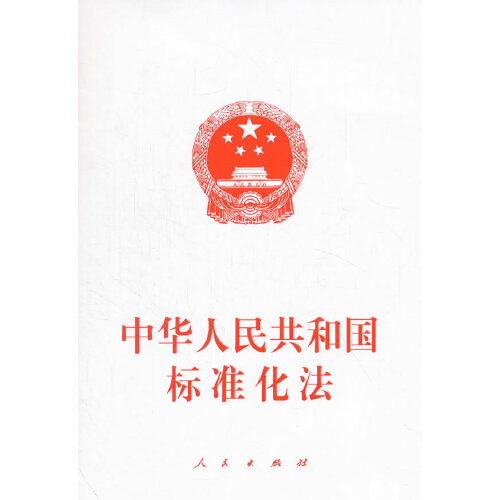
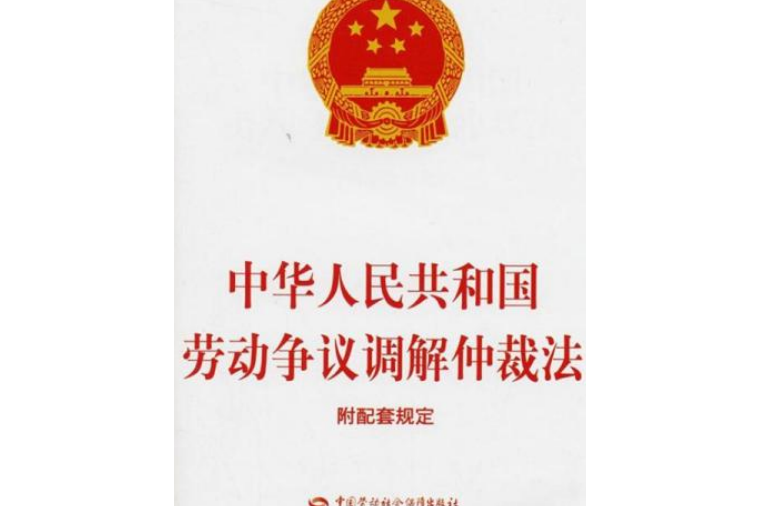
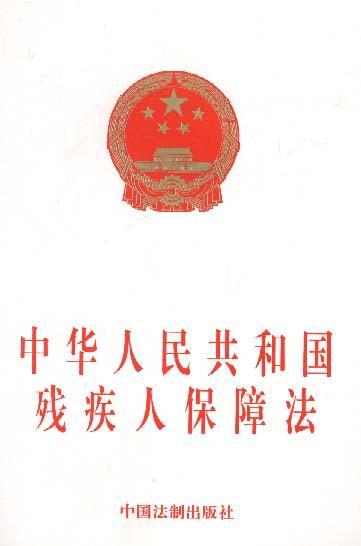
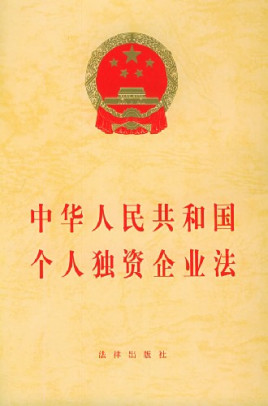
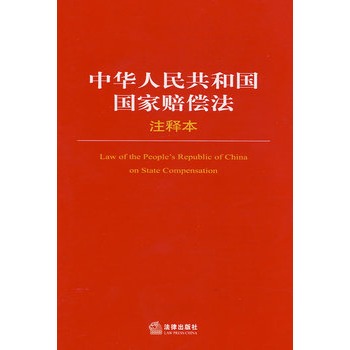
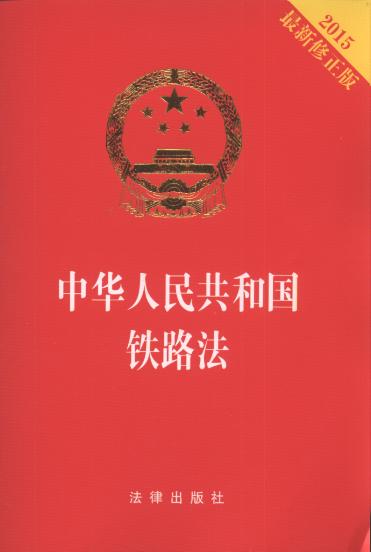
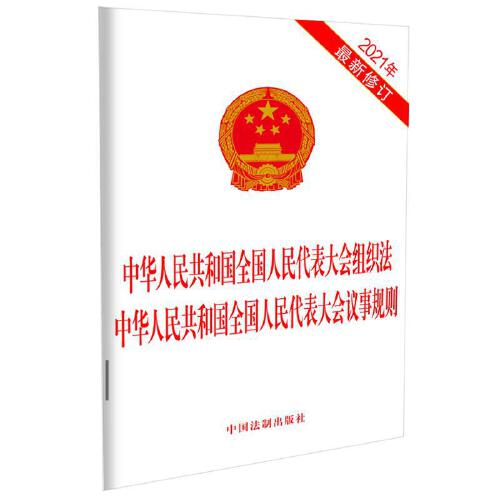


發表評論 取消回複